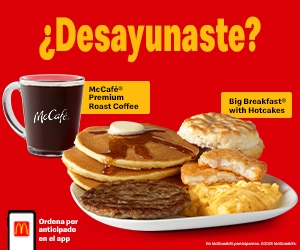Latest
-
 Ease the Holiday Blues with CDPH Programs December 19, 2025
Ease the Holiday Blues with CDPH Programs December 19, 2025 -

-
 Rogers Park Business Alliance Expands Annual Live Love Shop Rogers Park December 18, 2025
Rogers Park Business Alliance Expands Annual Live Love Shop Rogers Park December 18, 2025 -

-

Popular
Tags
Artistas Adolescentes Aprenden el Valor de un Arduo Trabajo
Artists Nationwide
Brazilian Students Tour Kirie Water Reclamation Plant
Challenges of Returning to School in Adulthood
Chicago
Chicago Air and Water Show
Chicago CPS
Chicago Dream Act
Comparta su Historia
CPS
Cultura Latina
Delicious Salad Meals
Dream Act
Dream Act chicago
Dream Relief
Dream Relief Chicago
El Alma de la Fiesta
Ending Summer on the Right Foot
Ensaladas sencillas y deliciosas como plato principal
Estudiantes Brasileños Recorren la Planta de Reclamación de Agua Kirie
Feria de Regreso a la Escuela de la Rep. Berrios
Festival Unísono en Pilsen
Grant Park Spirit of Music Garden
ICIRR
ICIRR Receives Criticism Over Dream Relief Day
ICIRR Recibe Críticas
Jose Cuervo Tradicional
José Cuervo
José Cuervo Tradicional Celebra la Cultura Latina e Inspira Artistas a Nivel Nacional
Latin Culture
Los Retos de Volver a la Escuela Cuando Adultos
Meijer Abre sus Puertas en el Distrito de Berwyn
Meijer Opens in Berwyn District
orth side Summer Fest on Lincoln Ave
PepsiCo Foundation Apoya Futuros Periodistas Hispanos
PepsiCo Foundation Supports Future Hispanic Journalists
Share Your Story
Show Acuático y Aéreo
Simple
StoryCorps
storycorps.org
Teen Artists Learn the Value of Hard Work
Terminando el Verano con el Pie Derecho
Unisono Festival in Pilsen
‘El Chente’





The New Jungle
By: Daniel Nardini
It almost sounds like a page from the book The Jungle by Upton Sinclair, written in 1906. In a report entitled “Unsafe at These Speeds: Alabama’s Poultry Industry and Its Disposable Workers,” put out by the Southern Poverty Law Center, workers at meat and poultry factories in the state are forced to labor at break-neck speeds as they make as much as 20,000 cuts of meat and chicken a day. While not as horrific as the conditions described in Sinclair’s book, the problems meat and poultry workers in Alabama must face are still considerable.
The speeds alone they must do can not only mean they make mistakes, but that they can suffer from such things as carpal tunnel syndrome, actual cuts from the knives they use (which can lead to infections), respiratory illnesses, and worse life-threatening physical injuries because of the break-neck speed. None of this is any good for not only the workers but also the consumers who might get a less than safe product for the dinner table. Meeting demand is one thing, but going at speeds that can harm and cause serious injury to workers is equally unacceptable.
Why is this happening? Many of the workers are Latinos, and many of the workers come from low income homes. So naturally many meat and poultry plants hire those who desperately need jobs, and a number of factory owners feel they can treat the workers any way they want. The Law Center, as well as the Midwest Coalition for Human Rights—which conducted the interviews with those workers in these factories, have appealed to the U.S. Department of Agriculture Secretary Thomas Vilsack about these conditions. So far, the Department of Agriculture has not commented. The Southern Poverty Law Center has also appealed to the Inter-American Commission on Human Rights—the autonomous organ of the Organization of American States. What this will do remains to be seen as it has no legal jurisdiction over any country in the Americas. But one important thing is that at least this report has come out, and like Upton Sinclair’s book The Jungle, it may have an impact on the Alabama and American public.